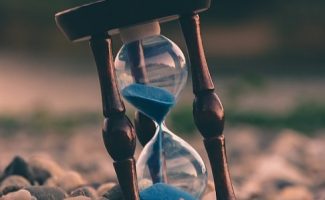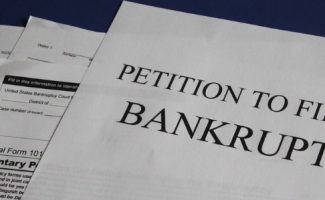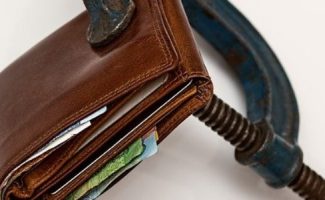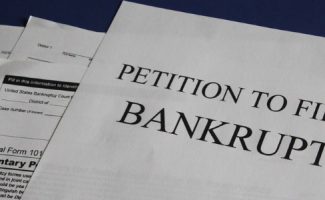A person so deep in debt that he cannot pay his creditors tends to be desperate and may depend upon a bankruptcy lawyer every bit as much as a criminal defendant would depend on a criminal lawyer. A bankruptcy attorney needs to understand basic mathematics, clear writing, and personal negotiation. This is so that his client understands what must be done, the creditors can accept what the debtor can do, terms between debtor and creditor are kept as civil as possible, and no mistakes can be made that would further endanger the debtor.
What is a Bankruptcy Attorney
When you are facing overwhelming financial problems, talking with a bankruptcy lawyer may be a helpful way to learn more about your options. An experienced bankruptcy lawyer has handled many, many bankruptcies for people and businesses who have presented a wide variety of circumstances. In addition, bankruptcy law is a rather complex and often-changing field of law that requires the guidance of a skilled attorney.
Facts About Bankruptcy Law
If you are an honest individual that is unable to pay for his or her bills and is considering bankruptcy, you should consult with a bankruptcy lawyer. Bankruptcy lawyers can sort through all of the bureaucracy of filing for bankruptcy. Since bankruptcy laws vary by state, bankruptcy attorneys should be proficient in the areas they serve. Even though you may feel that you do not need a bankruptcy lawyer or it’s too costly to hire a bankruptcy lawyer, it is probably wise to do so.
Bankruptcy Articles
Is a 750 Credit Score after Chapter 7 Possible?
Rebuild Your Credit to 750 After Bankruptcy One of the biggest questions when considering bankruptcy is how it will affect your credit score, particularly if it’s a 750. You can…
How Long Does Chapter 7 Stay on your Credit Report
Chapter 7 Bankruptcy & Credit Reports One of the most common types of bankruptcy is Chapter 7 bankruptcy, which involves liquidating assets to pay off creditors. After going through this…
Foreclosure Defense Lawyers
Do I Need a Foreclosure Attorney? Wealthy mortgage holders are not immune from the possibility of foreclosure. In today’s tough economy, many high-end homeowners as well as middle-class homeowners have…
Florida Wage Garnishment Exemption
How To Stop Florida Wage Garnishment Florida’s Wage Exemption Statute provides relatively generous protection for those who meet the definition of “head of family” and are facing a judicial garnishment…
Can I File Bankruptcy if I am Behind in Child Support Payments?
Can I Include Child Support in Bankruptcy? Debtors who fall behind on making spousal or child support payments may be under the impression they cannot file for bankruptcy. In fact,…
So What Really is a Debt “Write-Off”?
Debt “Write Off” and “Charge Off” Does Not Mean What You Think it Means Have you ever had a debt “charged off” or “written off” on your credit report and…
What Happens to Garnished Funds After Filing Bankruptcy?
For debtors, the path they traveled which led to a bankruptcy is long and varied. There were generally many signs along the way that point towards a looming bankruptcy. For…
Rebuild Your Credit: File Bankruptcy
One of the biggest myths about bankruptcy is that it destroys your credit. People believe that if they file bankruptcy they will never again have good credit. But let’s look…
Bankruptcy Can Stop Lawsuits
Your creditors don’t want you to know this, but it’s true. Bankruptcy can stop lawsuits. Unfortunately, most people don’t do anything when a creditor sues them. They don’t even bother…
Bankruptcy and Auto Loans
File Bankruptcy And Stop Hiding From the Repo Man Did you know that filing bankruptcy will automatically take your name off the repo man’s list? That’s right. . .bankruptcy can…
Bankruptcy Can Help With Judgements
If you are behind on your bills, you undoubtedly are being bombarded with phone calls and letters from your creditors and collection agencies. They want their money and they want…
Top 16 Myths About Bankruptcy
You know all those bad things ….you’ve always heard about bankruptcy. Most of it is NOT TRUE…. and we’ll prove it….right here…right now. Here are the Top 16 Myths your…
Chapter 7 Bankruptcy vs Chapter 13 Bankruptcy
While a Chapter 7 Bankruptcy and Chapter 13 Bankruptcy both offer benefits you may only qualify for one type. One chapter will help you save your home if your behind…
Can I Discharge my Tax Debt if I file Bankruptcy?
Robert and Rachel have fallen on hard times the last few years. Robert had back surgery two years ago and his once profitable landscaping business has failed due to the…
Low Cost Bankruptcy Attorney
How to Find an Affordable Bankruptcy Attorney If you’re to the point where you’ve begun to research the process of selecting a bankruptcy attorney, you’ve no doubt already experienced a…
Chapter 7 Bankruptcy Process
Chapter 7 Bankruptcy Are you considering bankruptcy? Do you need more information regarding how to file bankruptcy? Have you already filed and have a question about what happens next? This…
Types of Bankruptcy
When most people talk about filing bankruptcy, they usually are referring to either Chapter 7 or Chapter 13. On the other hand, when you turn on the news and hear…
Bankruptcy in Texas
Resources for filing bankruptcy in Texas Welcome to the Bankruptcy in Texas page, your source for Texas-related bankruptcy resources and information. Be aware that bankruptcy laws and requirements differ from…
Copy of Bankruptcy Discharge Benefits
Although the bankruptcy discharge papers may not look like much (see the bottom of this page for an example), just about anyone who files a petition can attest to the…
Bankruptcy: Chapter 7 or Chapter 13
Today, with the economy’s “perfect storm” creating overwhelming job losses and dramatic decreases in wealth, our guidance and legal services are also helping those who have found themselves in hard times. Personal bankruptcies are being resorted to daily through the filing of Chapter 7 and Chapter 13 bankruptcy petitions. Since debt is a common problem in the U.S., filing bankruptcy has become inevitable for many hard-working individuals.
The current bankruptcy Code, known as Title 11 of the United States Code, has the main objective of reorganizing debtors in financial trouble. For our clients, if they are qualified candidates, Chapter 7 of the Bankruptcy Code tends to provide the most immediate relief from the weight of unwanted debts. Chapter 7 bankruptcy consists of liquidation proceedings that are administered by the bankruptcy cell of the federal district courts. This means that debtors turn over all nonexempt property, if any, to a case trustee assigned by the Court. The case trustee then sells and converts all the properties to cash for the benefit of the creditors.
Chapter 7 bankruptcy can be filed by any person who is a resident of the USA or who has a business or property in the States. Chapter 7 bankruptcy cannot be filed by any person who has been granted debt discharged by a Chapter 7 filing within the last 6 years, who has completed a repayment plan under a Chapter 13 filing, or whose bankruptcy filing was dismissed for cause within the last 180 days.
It should be noted that not all debts are dischargeable by Chapter 7 bankruptcy. Child support, taxes, liability for injury or death caused from driving in an intoxicated state, student loans, criminal fines or penalties and non-dischargeable debts incurred from a previous bankruptcy are some of the debts that will remain even after a successful bankruptcy filing.
A few of the major benefits of Chapter 7 include stopping collector harassment and foreclosure actions, removal of community debts (applicable for divorcees), and completely discharging most, if not all, of the debts of the petitioner.
Changes in Bankruptcy Law
To make things even more complicated, there have been some major changes in bankruptcy law in recent years. In 2005, it became more complex and more expensive to file for bankruptcy. It’s not as easy to file personal bankruptcy as it used to be, thanks in part to the people who abused bankruptcy laws for their own interests.
A significant new restriction on the most commonly used type of personal bankruptcy, Chapter 7, was also put into place. There is now a “means test” that must be passed to be eligible for a Chapter 7 bankruptcy. If your income is too high, a Chapter 7 bankruptcy will not be available to you.
Automatic Stay to Stop Your Creditors
One of the most significant steps that your bankruptcy attorney can help you with is getting an automatic stay. When your attorney files your bankruptcy with the court, the automatic stay will be issued. The stay will stop your creditors from filing legal actions against you.
Getting an automatic stay is especially important if you are at risk of:
- being foreclosed on your home
- being evicted from your home
- losing basic resources such as unemployment benefits or welfare payments, and utilities such as heat and water
- losing your job/income because of wage garnishments
- being found in contempt of court for failure to pay child support
Contact an Experienced Bankruptcy Lawyer
Talking with a seasoned bankruptcy lawyer can put your mind at ease and answer all your concerns about bankruptcy and your future. Get your financial information together and contact a bankruptcy lawyer in your area today.




















